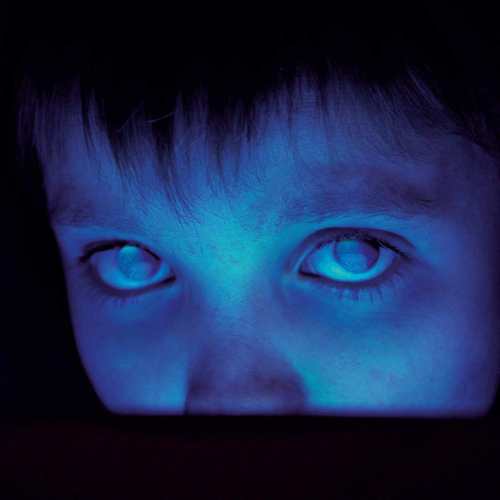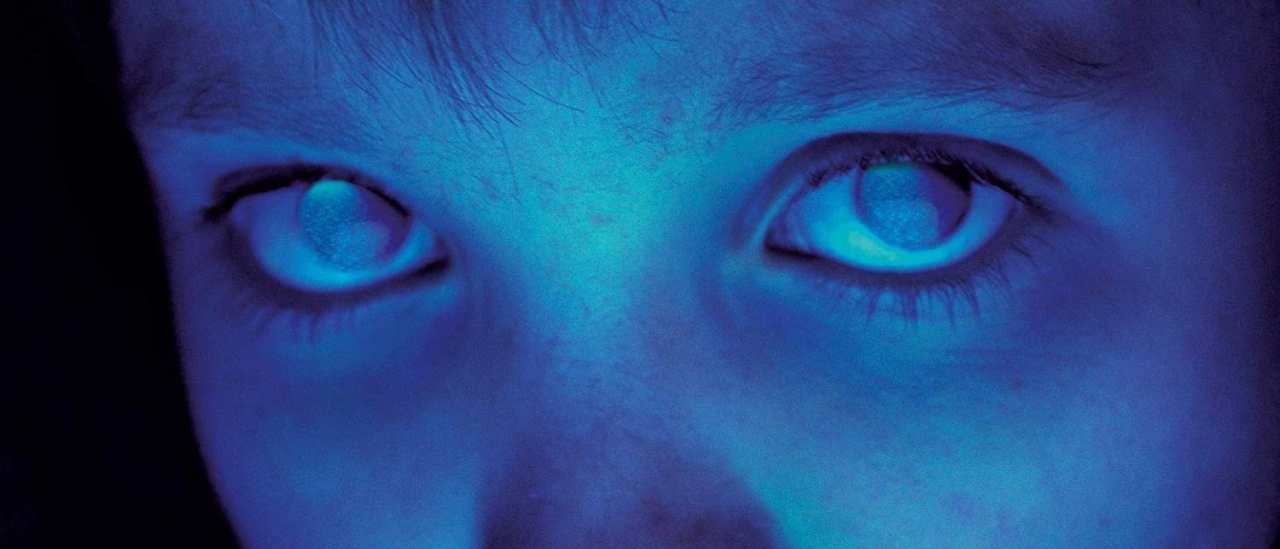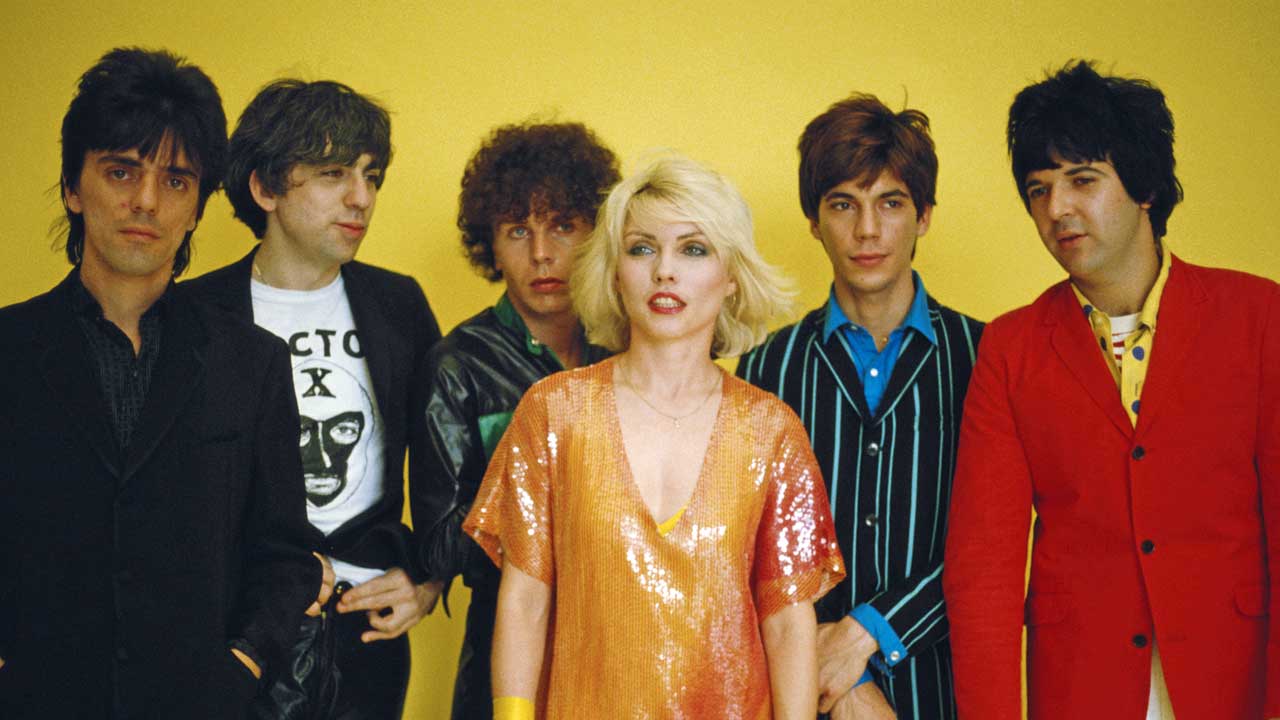You can trust Louder

Fear of a Blank Planet
My Ashes
Anesthetize
Sentimental
Way Out of Here
Sleep Together
Porcupine Tree’s catalogue is full of rounded and cohesive albums, but none hit the spot with quite the enduring impact of their ninth. Fear Of A Blank Planet distilled all the riff-driven intensity and post-rock audacity of earlier records down to a gleaming, diamond core of meticulously refined perfection.
The title track is a skull-rattling sprint through modernity’s vapid cacophony; Anesthetize is a supremely moody piece that digs into the emptiness at the heart of a technologically spoilt, emotionally starved generation, featuring a solo from Rush legend Alex Lifeson, and is an astonishing, 18-minute tour-de-force; the closing Sleep Together is moving and menacing.
Most impressively, and definitely not by design, Fear Of A Blank Planet made prog seem cool as fuck. Which, of course, it actually is.

Every week, Album of the Week Club listens to and discusses the album in question, votes on how good it is, and publishes our findings, with the aim of giving people reliable reviews and the wider rock community the chance to contribute.

Other albums released in April 2007
Sign up below to get the latest from Classic Rock, plus exclusive special offers, direct to your inbox!
- Kings of Leon - Because of the Times
- Poison the Well - Versions
- Fountains of Wayne - Traffic and Weather
- REO Speedwagon - Find Your Own Way Home
- Static-X - Cannibal
- Marillion - Somewhere Else
- Hellyeah - Hellyeah
- W.A.S.P. - Dominator
- Nine Inch Nails - Year Zero
- Patti Smith - Twelve
- Arctic Monkeys - Favourite Worst Nightmare
- HIM - Uneasy Listening Vol. 2
- The Detroit Cobras - Tied & True
- Black Rebel - Motorcycle Club

What they said...
"Wilson started Porcupine Tree in 1987 as a home-studio experiment that has since evolved, live and on an extensive series of records, into an aggressively modern merger of Rush’s arena art rock, U.K. prog classicism – especially Pink Floyd’s eulogies to madness and King Crimson’s angular majesty – and the post-grunge vengeance of Tool." (Rolling Stone)
"Best of all is Sleep Together: like Radiohead playing Kashmir, and brilliantly led by former Japan keyboard player Richard Barbieri. Yes, prog lives--and Porcupine Tree are its leading players." (Mojo)
"Porcupine Tree makes a triumphant return to experimental, non-linear style with 2007's Fear of a Blank Planet. Maybe Steven Wilson was afraid that the comparatively poppy Deadwing and In Absentia were edging too close to the mainstream, because he seems far less concerned with overtly accessible songwriting on Blank Planet. Even still, the cerebral, atmospheric sound on this album remains enormously compelling from almost the first moment." (AllMusic)

What you said...
Gary Claydon: From imaginary band in a bedroom project to a hugely popular one who still manage to retain a sense of being the biggest band in the world that hardly anybody has ever heard of, it's been quite a trip for Porcupine Tree. All under the guidance of bona-fide band leader and inspiration Steven Wilson, surely the most omnipresent figure in 21st century music.
One of the favourite topics of discussion for Porcupine Tree's legions of fans is the ranking of their output. Most of their albums have their supporters but (up to the excellent Closure/Continuation) there were usually three main contenders - In Absentia, Deadwing and Fear of a Blank Planet. For me it's the latter that edges in front. It's the culmination of the scope, ambition and sheer sonic audacity of that part of the Porcupine Tree story.
Fear Of A Blank Planet isn't an easy listen from a subject matter point of view. It isn't meant to be. It's core themes are of isolation, bipolar and attention defecit disorders, dependence on prescription drugs, a failure to engage with the outside world and hints of suicidal thoughts, particularly among teenagers. It also examines the effects and influences of technology on these problems.
Given that Wilson wrote the material in 2006, before smart phones and social media were anywhere near as ubiquitous as today, these themes are somewhat prescient. In addition, in a world where, quite recently, we were forced to lock ourselves away, isolated from the rest of the world, they are themes that are still very relevant given the problems encountered both during and following this period of craziness.
Musically, Fear Of A Blank Planet is a tour de force. The six tracks seem to flow effortlessly into each other making for a compelling 50 minutes. It soars at times, at others it hits hard with some seriously heavyweight prog'n'roll, clearly displaying signs of the influence of such as Opeth and Messugah on Wilson's songwriting. Of closing track Sleep Together, Wilson has said that he wanted it to sound like " Nine Inch Nails with John Bonham on drums and produced by Massive Attack". These are interspersed with passages of almost delicate introspection, melancholic in nature, most notably on My Ashes the music for which was mainly written by keyboard player Richard Barbieri.
At the centre of it all, underpinning the whole album is the epic Anesthetize, arguably the greatest piece Porcupine Tree ever produced. It's a monster of a track, essentially in three parts and is the track that you would play for someone who wanted to know what Porcupine Tree were all about. The first part is, of course, completed by a superb Alex Lifeson guitar solo which is followed by a pulsating bridge into the second part - that whole, brilliant, passage still makes me sit up and take notice no matter how many times I hear it.
While Lifeson's all too brief appearance is undoubtedly a star turn on Fear Of A Blank Planet, it's worth mentioning here the contributions of the band members themselves. As well as everything else he brings to the table, Steven Wilson's own guitar work is none too shabby. He is a fine vocalist but he can sound a little flatly cold at times. However, I find that fits well with the overall dynamic of Fear Of A Blank Planet. Barbieri (formerly of Japan among others) delivers excellent keyboards (as usual) and Colin Edwin is a very competent bassist. Gavin Harrison's drumming is high class - he is surely one of the best kept secrets in rock!.
The companion E.P. (or outtakes, depending on your view) Nil Recurring is well worth a listen in conjunction, though not essential. Three of the four tracks contained on the E.P. essentially repeat the same themes already dealt with on Fear Of A Blank Planet (the fourth, the title track, is an instrumental). The pick of the tracks on Nil Recurring is Cheating The Polygraph. There was a limited release that combined Fear Of A Blank Planet and Nil Recurring into a double album. The main result of that, for me, was to stretch the narrative to a bordering-on-difficult 79 mins. Still, another favourite topic among Porcupine Tree fans is what would constitute the best running order of that double album.
Overall, then, Fear of a Blank Planet is a superb example of modern progressive music, a 9/10 all day long.
Chris Downie: Given the band's unexpected - but most welcome - return after a long hiatus recently, it seems fitting to revisit Porcupine Tree's back catalogue with a nostalgic-but-critical ear. While their 90s output is often relegated to the 'diehards and anoraks only' corner, every album from 2002's essential In Absentia onwards was a masterclass in modern progressive rock, sitting somewhere comfortably in between the accessible, indie-rock tinged tones of Muse and Radiohead and the dark rock of Katatonia and latter-day Opeth.
With its pessimistic, future dystopian overtones, 2007's Fear of a Blank Planet was met with great critical and commercial acclaim, backed by a hugely successful tour, bolstered by an increased profile among the metal crowd, which was helped considerably by the backing of Roadrunner Records and the approval of peers such as Opeth, Katatonia and Anathema, not to mention guest appearances from King Crimson and Rush legends Robert Fripp and Alex Lifeson.
Despite being darker and thus slightly less immediate than its two predecessors, the aforementioned In Absentia and 2005's incredible Deadwing, this is an album which stands up undeniably well, due to its often eerily prophetic subject matter, yet its biggest asset is in getting just the right balance between eclecticism and continuing the path set out previously.
The opening title track runs at an impressive pace and hits home the bleak subject matter of over-stimulated, apathetic, disenfranchised youth in impressive style, while Lifeson's appearance in the 17 minute masterpiece Anesthetize is not only the centrepiece of the album, but one of the highlights of their career. The dark, synthesised moods of closer Sleep Together evoke the electro-gloom of Depeche Mode and bring proceedings to a close in suitably downbeat style.
If there is one thing all too often overlooked in conversations about this band's seminal contribution to contemporary prog music, it is the contribution of Gavin Harrison. One of the finest drummers in rock, with a brilliant sense of dynamics, yet who always tempers his displaying of brilliant chops with playing for the embellishment of the song.
He is the perfect foil for Steven Wilson's brilliance as a songwriter and with the band rounded out by Barbieri and Edwin, this line-up delivered what can only be described as one of the greatest rock albums (of any sub-genre) of the last 30 years, perhaps equalled or bettered (depending on your standpoint) only by its two predecessors. 10/10.
Mike Canoe: While I understand the Pink Floyd comparisons, Fear Of A Blank Planet by Porcupine Tree reminds me of a different concept album by a different legendary classic rock band. I hear Fear Of A Blank Planet as the Who's Tommy rewritten for the millennial generation. Whereas Tommy is rendered a "deaf, dumb, blind kid" after being traumatized by his parents, this story's protagonist, Robby, is anesthetized and desensitized by the adults in his world. While Tommy is “a pinball wizard,” XBox is a "god" to Robby. Both overmedicated and overstimulated, Robby is rendered a "blank."
While inspired by the book, Lunar Park, by Bret Easton Ellis, which is told from the perspective of Robby's father, head Porcupine Steve Wilson is more concerned about another generation being raised by "screens" as surrogate parents. What fascinates (and horrifies) me is that this album was released in 2007 around the time the first iPhone was introduced but well before the ubiquity of smartphones and social media. Things have only arguably gotten worse for Robby's generation and the ones that follow.
It's a bleak story with (spoiler alert) no happy ending. The kids are not alright.
Graham Tarry: I discovered Porcupine Tree late, during lockdown, and this album is immense. The title track and Anesthatize are modern prog classics.
Sacha Mahon: I love this album, I’m a massive Porcupine Tree and Steven Wilson fan, and as an equally massive Rush fan having Lifeson here is like icing on the icing. But as much as all of that is true, I still rate many other Porcupine Tree albums higher, Deadwing in particular. Entirely subjective of course, and not in any way putting this album down. Porcupine Tree at their worst are still leagues ahead of most.
Marike Elzinga: Fantastic album, though I slightly prefer In Absentia.
Michael Porter: Absolutely stunning album - one of my all-time favourites.
James Last: Good album, although with the obvious exception of the Anesthetize which might well be their masterpiece, i never quite understood why it ranks as the top Porcupine Tree album for so many. But that's me. There's a a couple of tracks on the Nil Recurring EP that personally I think they could have switched over and it'd been even better, namely Normal and What Happens Now replacing Sentimental and Sleep Together respectively.
Michael Saulle: My first official intro to the band was through this album. To be listened to in sequence, and not a dry moment throughout. Also, Gavin Harrison has to be one of the greatest drummers around.
Andy Price: A faultless album and one of the best rock (not just prog) albums of the past 20 years.
Paul Capener: Great album from a peerless prog band.
Mark PS: As an album on its own merits, I do like Fear Of A Blank Planet, and I do still listen to it fairly regularly, but I think it suffers (if that's the right word) in coming after Deadwing and In Absentia - I've often thought Porcupine Tree's albums in the (for the want of a better term) Gavin Harrison period got "less good" (worse seems a bit too harsh to use as a term) with each passing album, for all that they each had momentous moments on them (though I do think the subsequently released Closure/Continuation is on a par with the aforementioned In Absentia and Deadwing).
I also think that some of the tracks which were on the Nil Recurring EP (which I believe were written/recorded in the same sessions) would have been a better fit musically on the album (though I appreciate that it's a concept album and so those tracks were likely omitted for a reason and released separately).
My favourite track on it is probably Sleep Together, but the best section of music on it is the The Pills I'm Taking section of Anesthetize (that mad and brief heavy bridge back to the chorus at around the 11 minutes mark with the double kick drumming fills is an outrageous bit of drumming - just your average Gavin Harrison drum section).
If giving a mark out of 10, I'd give it 7 - purely on the basis that it's a good album, and it has some great moments (not least Alex Lifeson's solo), but it's not as good as the two albums which preceded it.
Greg Schwepe: Had never heard any Porcupine Tree before this week’s selection. Knew of them and also Steven Wilson as “the guy who remixes everyone’s albums.”
Being a prog rock fan, I just always laughed when I heard of any so-called “new Prog Rock bands.” In my mind there was only Yes, Genesis, ELP, Pink Floyd, and King Crimson. Nothing against any of these “new” bands, I just wasn’t aware that prog stuff like that could be made these days without a 40-year-old Mellotron and a bunch of Echoplex guitar pedals the same age. I have since found out otherwise and proven wrong!
And after listening to Fear Of A Blank Planet I’m pretty sure I just had another “What have I been missing?” moment with Porcupine Tree. While writing this review I’m now on my third listen. Totally hooked by the atmospheric keyboards and moods of the album. And then some songs (Way out of Here) have tons of riffy guitar that just pounds along. And somewhere in there on a track is a favourite guitarist of mine from a Canadian trio. Along with Robert Fripp from one of those original prog rock bands I mentioned.
Again. ”Um, how did I miss this band?”
On my first listen I found what I initially thought were three songs I had listened to. After checking to see the title I found that I was still listening to Anesthetize and that those “three songs” were the same 17-minute track which featured various moods and sections.
In a nutshell I happened on an album I liked start to finish and a new band I now get to explore.
Alex Hayes: "Don't try engaging me / The vaguest of shrugs / The prescription drugs / So you'll never find a person inside" - Fear Of A Blank Planet
A harrowing concept album relating to teenage alienation and social isolation, Fear Of A Blank Planet is a simultaneously bleak and beautiful listening experience. The lyrics of the album elaborate on those central themes above, through issues such as broken families, prescription drug addiction, mental disorders and excessive 'screen time', all combining to paint a grim picture of a withdrawn youth, both mentally and spiritually lost or 'blank' through numbness. Crikey.
Musically, Fear Of A Blank Planet is sumptuous in places, not least on the album's triptych centrepiece Anesthetize (which features a terrific guitar solo from no less than a guesting Alex Lifeson), but it's a bit too much of a downer to be a personal favourite of mine. I prefer both the In Absentia and Deadwing albums for a start. My introduction to Porcupine Tree was via Up The Downstair in the late 90s, and I still have a huge fondness for that album too (especially the later remix of the album that adds Gavin Harrison's drums into the mix. Vast improvement that.).
Then there is Steven Wilson's solo work, some of which I actually prefer over Porcupine Tree as it's so strong. The Raven That Refused To Sing (And Other Stories) and Hand. Cannot. Erase. in particular, are such exceptional recordings that I honestly doubt Wilson will ever match them creatively, however many musical genres he finds himself dabbling in. Drive Home may well be one of the finest songs of the new millennium.
"This is fate / This is your escape / Leave here now / Leave here like it's over" - Sleep Together
Despite it's beauty, Fear Of A Blank Planet isn't an easy listen for me. The final two tracks make strong allusions towards teenage suicide. Also, it only feels complete to me when listened to alongside the Nil Recurring EP, which elaborates on the concept further. Tracks like My Ashes and Sentimental come even more into their own when listened to in this context. Apparently, there's a double vinyl version of the album that combines both recordings. Likewise, I'd have preferred some kind of double CD set of this.
I have been remiss so far in checking out Porcupine Tree's Closure/Continuation 'reunion' album. This week's album choice will hopefully give me the necessary boot up the arse to get round to that. In conclusion, Fear Of A Blank Planet is too fantastic overall not to be recommended. It's a bit depressing, and a bit of a sad indictment on modern society, but also a captivating listen, and musically exquisite at times. 8/10
John Davidson: Porcupine Tree are a very 21st century prog band, featuring angular and jagged tones that make the listener feel uncomfortable at a subconscious level rather than revelling in the lush melletron infused forest of floating islands that epitomises the 70s.
I was initially drawn to Fear Of A Blank Planet by the Alex lifeson solo but it's got so much more going for it than that. The music is melodic, compelling and addictive while also being a massive downer. It really is an excellent representation of the gloomy Xbox obsessed teenagers that it is about.
This isn't a soft, cosy melancholy it's an expression of restrained anger and despair. It really is an effective work of art but perhaps for that reason it's one I admire more than I enjoy. Deadwing and In Absentia are probably more enjoyable albums (albeit they have a similar tone). I'd still give this an 8/10.
Chris Elliott: It's okay. It's easier to admire than actually like. Its a record/band I never actually choose to listen to. I am far more impressed by Richard Barbiera's other stuff which I do choose to listen to.
Lyrically it's pretty trite - it's like 16-year-old's poetry - and a bit smug despite the bleakness. That and the vocals are pretty average at best. Then there's the random jazzy look at me drum bits which are annoying. But it is an album that's worth a listen. I never got the attraction but lots do - and it's not a wasted hour - it's definitely interesting. It's like art you appreciate, but not in my living room.
Evan Sanders: I found myself liking this musically. I didn't really think the style was keyboard-dominant prog rock compared to the 1970's. The genre seems more like "orchestral rock" or a less metal version of bands like Metallica, with long multi-part songs and a dark tone. I find it lyrically dark as well. I would have enjoyed this in my moody teenage years. Listening to it now feels like a pessimistic version of the Day In The Life Of A Teenager albums, such as The Who's Quadrophenia, which wasn't all that optimistic itself. 6/10
Uli Hassinger: It's always an experience listening to this album. It carries emotions and moods like relaxation, aggression, calm etc. like only a few albums do. The whole album is a feast to the ears. Although the tracks are all over five minutes long it never gets boring or makes you sleepy. There is so much to hear, so much different moods within every song and epic soundscapes.
All the songs are brilliant, but Anesthetize and Sleep Together are true masterpieces and belong to the best prog rock songs ever recorded. 10/10.

Final score: 8.47 (78 votes cast, total score 661)
Join the Album Of The Week Club on Facebook to join in. The history of rock, one album at a time.
Classic Rock is the online home of the world's best rock'n'roll magazine. We bring you breaking news, exclusive interviews and behind-the-scenes features, as well as unrivalled access to the biggest names in rock music; from Led Zeppelin to Deep Purple, Guns N’ Roses to the Rolling Stones, AC/DC to the Sex Pistols, and everything in between. Our expert writers bring you the very best on established and emerging bands plus everything you need to know about the mightiest new music releases.


